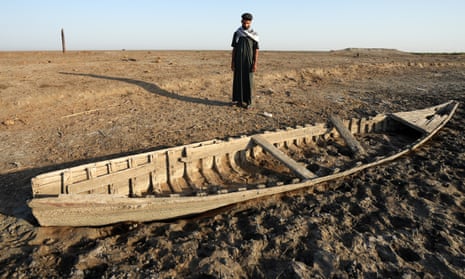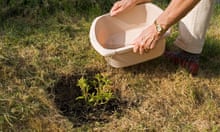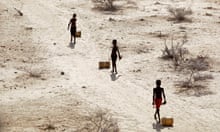Twenty-five countries that are home to a quarter of the world’s population are facing extreme water stress, according to new research.
Data from the World Resources Institute suggests these countries are regularly using 80% of their water supplies each year.
WRI’s Aqueduct water risk map reveals demand for water is increasing around the world and has more than doubled since 1960.
While demand for water has plateaued in Europe and the US, it is soaring in Africa. By 2050, water demand around the world is projected to increase by between 20% and 25%.
The 25 countries under the most water stress include Saudi Arabia Chile, San Marino, Belgium and Greece. The five facing the highest water stress are Bahrain, Cyprus, Kuwait, Lebanon and Oman.
Globally, about 4 billion people, or half the world’s population, are exposed to extremely high water stress at least one month a year, according to the Aqueduct analysis. By 2050 the number could be closer to 60%.
“Living with this level of water stress jeopardises people’s lives, jobs, food and energy security. Water is central to growing crops and raising livestock, producing electricity, maintaining human health, fostering equitable societies and meeting the world’s climate goals. Without better water management, population growth, economic development and climate change are poised to worsen water stress,” the report’s authors say.
According to data from Aqueduct, 31% of global GDP – worth $70tn – will be exposed to high water stress by 2050, up from 24% ($15tn) in 2010. Four countries – India, Mexico, Egypt and Turkey – will account for more than half of the exposed GDP in 2050.
The water risk research says increased water stress threatens countries’ economic growth. It also affects food production. The research says 60% of the world’s irrigated agriculture faces extremely high water stress, particularly sugarcane, wheat, rice and maize. By 2050 the world will need to produce 56% more food calories than in 2010 to feed a projected 10 billion people.
In India, a lack of water to cool thermal power plants between 2017 and 2021 resulted in 8.2 terawatt-hours in lost energy– enough electricity to power 1.5m Indian households for five years.
The report says interventions can stop water stress leading to water crises. Singapore and Las Vegas have been able to thrive even under the most water-scarce conditions, the report notes. Authorities there have saved water using desalination and other techniques such as wastewater treatment and reuse.
Political will is needed to introduce water efficiency and reduce water stress, the report’s authors argue.
The 25 most water stressed countries are: Bahrain, Cyprus, Kuwait, Lebanon, Oman, Qatar, the United Arab Emirates, Saudi Arabia, Israel, Egypt, Libya, Yemen, Botswana, Iran, Jordan, Chile, San Marino, Belgium, Greece, Tunisia, Namibia, South Africa, Iraq, India and Syria.










